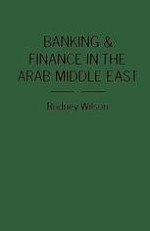1983 | OriginalPaper | Chapter
Islamic Banking in Principle and Practice
Author : Rodney Wilson
Published in: Banking and Finance in the Arab Middle East
Publisher: Palgrave Macmillan UK
Included in: Professional Book Archive
Activate our intelligent search to find suitable subject content or patents.
Select sections of text to find matching patents with Artificial Intelligence. powered by
Select sections of text to find additional relevant content using AI-assisted search. powered by
The Koran, like the Bible, is not only concerned with spiritual matters of an abstract nature, but also with how believers should conduct their everyday lives. Unlike the Bible, however, which concentrates its temporal teaching on social relations, the Koran explicitly deals with economic questions such as the distribution of property on inheritance, hoarding, usury and the utilisation of financial resources. Mohammed was not just a prophet, but also a law maker, and the Sharia or Islamic law has to be followed by all believers. It would be incorrect to suggest of course that Christian scholars were never concerned with economic matters, since for example Thomas Aquinas and the scholastic philosophers deliberated on the notion of a just price and the morality of interest charges. Nevertheless these concerns are not given much emphasis in the Bible itself, and they are far from being central issues in modern Christian debate. In contrast the revival of interest in fundamentalism in the Muslim world has resulted in greater attention being paid to Koranic teaching and the Sharia law on economic issues. At the same time given the new financial wealth of parts of the Muslim world, it is only natural that believers are particularly interested in those parts of the Prophet’s teaching offering economic guidance, perhaps even to the exclusion of other matters.
